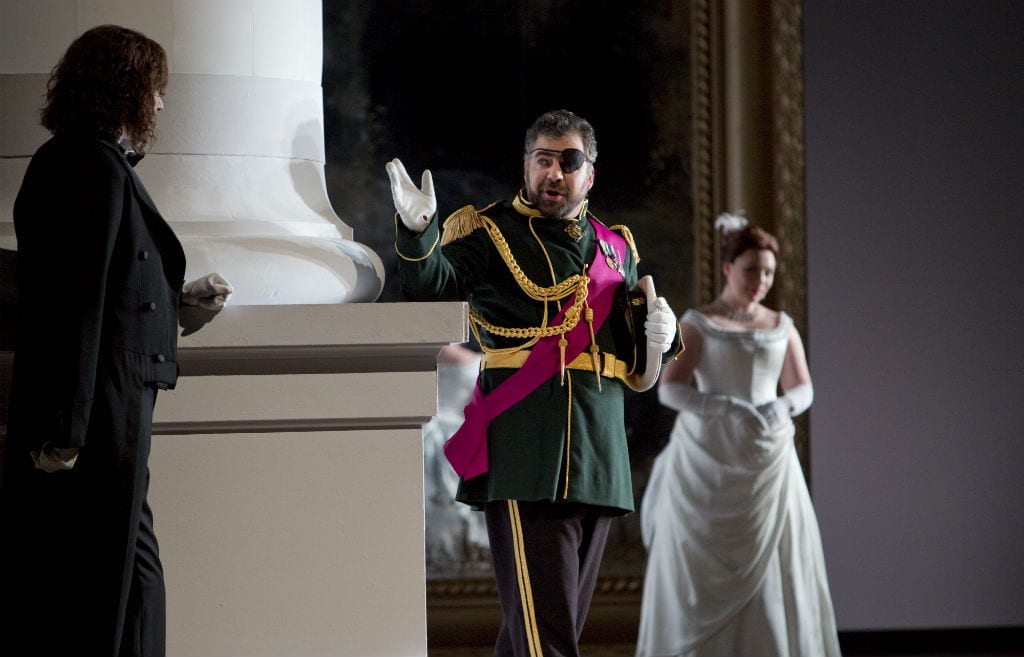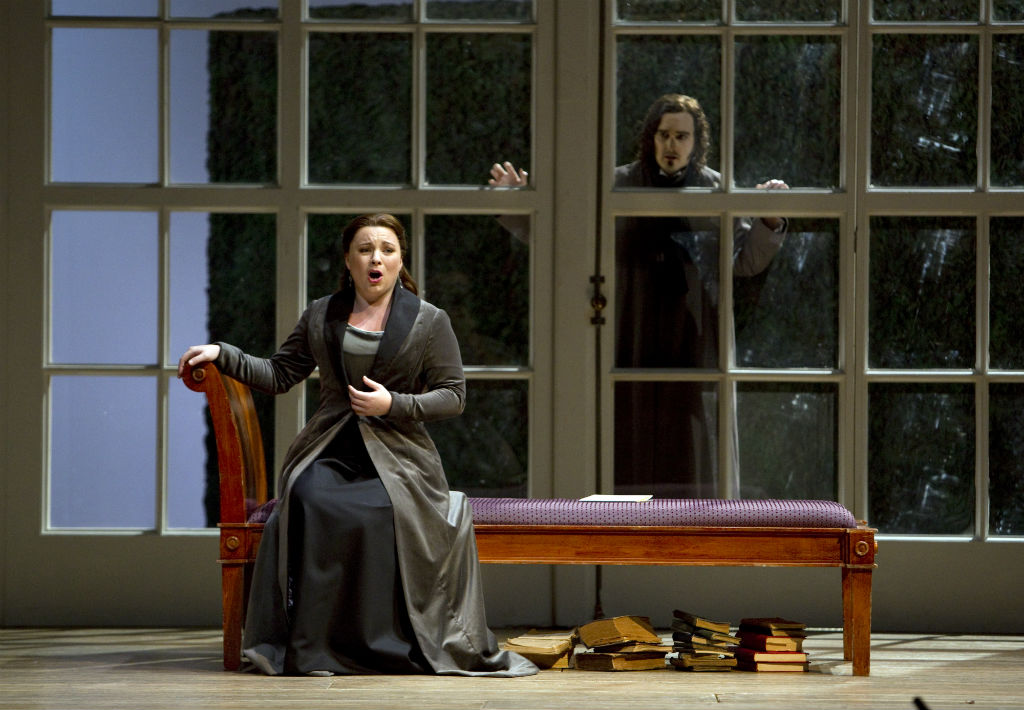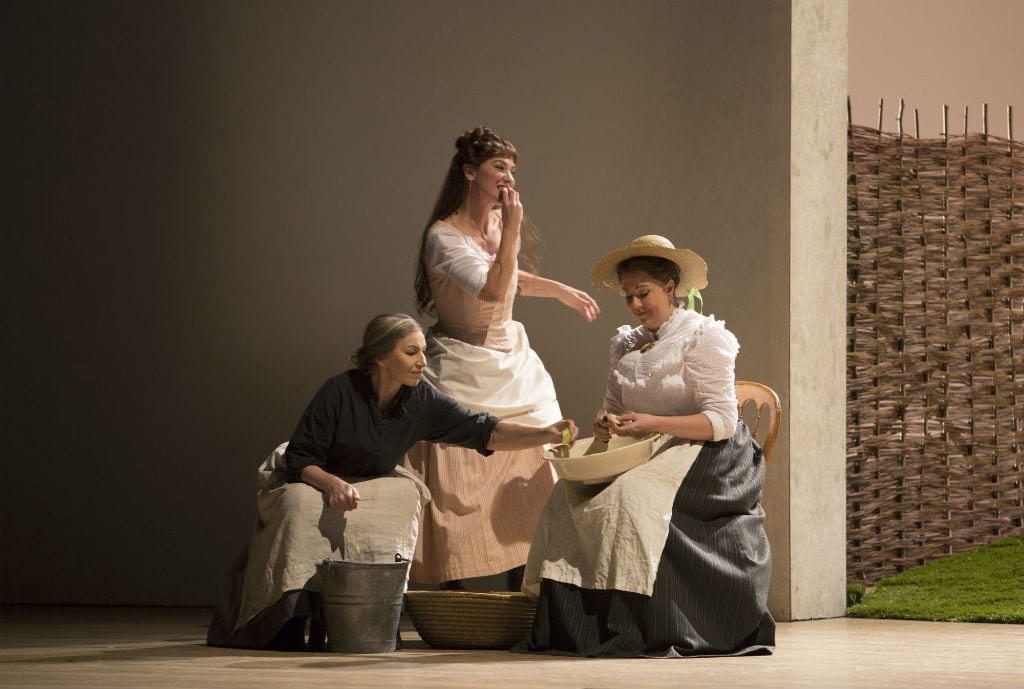The WNO autumn season is labelled ‘Russian Revolution’ and comprises works by Tchaikovsky, Musorgsky, and Janacek, all set in Russia. The opera by Tchaikovsky is Eugene Onegin, his tale of boredom, infatuation, jealousy, and misery, set at first in the remote Russian countryside and then moving to St Petersburg for the final act. Tchaikovsky was a devoted admirer of Mozart and this marvellous opera shows what he learned from the master – he offers us lovely melodies and demonstrates a consummate grasp of how to illustrate shifting emotions and how to build up to dramatic climaxes using a group of singers and an active chorus. This WNO production, though a little slow to catch fire, does in the end do full justice to all these virtues.
Olga seems to be in love with the poet, Lensky. He introduces his neighbour, the sophisticated and world-weary Onegin, to Olga’s sister, Tatyana. She, a dreamy and bookish teenager, falls for this newcomer and impetuously sends him a letter confessing her passion. The next day he coldly tells her he is not the marrying kind and she is mortified. At a party shortly afterwards Onegin becomes annoyed at hearing gossip about him and Tatyana. He flirts with Olga, provokes a duel with Lensky, kills him, then flees abroad to let the scandal die down.
What a difference a wig makes! When Onegin returns from his European wandering after killing his friend, gone is his banker short-back-and-sides and gone is the pompous prig of the first act. The long-haired wanderer falls in love at first sight with the woman he coldly rejected in the garden of the Larin family mansion three years before. But she is now married and determined to honour her marriage vows.
And at this point the production changed gear – Nicholas Lester found his passion as Onegin, Natalya Romaniw flowered as Princess Gremina and Miklos Sebestyen sang Gremin’s wonderful bass aria with power and poise.
In the first two acts Lester seemed ill at ease and lacked that spark of mystery that is needed to explain Tatyana’s sudden infatuation. Romaniw sang superbly – her Letter Song was a masterclass in controlled and beautiful singing – but she came over as a princess-in-the-making rather than a naïve teenager. The highlights of the first two acts for me were the splendid singing of Jason Bridges as the doomed poet and the wonderful sound made by the incomparable WNO chorus – hats off to Chorus Master, Stephen Harris.
It is a long evening but one full of pleasures – fine music and excellent singing. And in the final act – the ball in St Petersburg and the confrontation in Gremin’s house – this production really hits the heights that Tchaikovsky’s masterpiece deserves.




